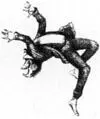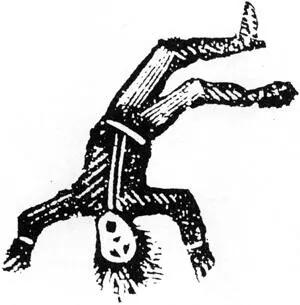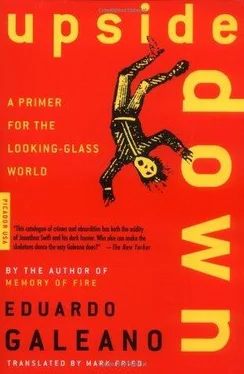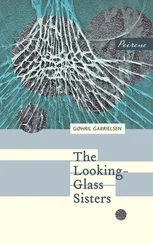Thanks to the new global reality, the “informal sector” of the economy in Latin America has mushroomed. The “informal sector,” which translated into English means work outside the law, generates eighty-five of every hundred new jobs. Workers outside the law put in more hours, earn less, get no benefits, and are not covered by labor legislation won through long, hard years of union struggle. Not that the situation of legal workers is much better: “deregulation” and “liberalization” are the euphemisms used to describe a situation of every man for himself. The elderly Paraguayan woman who told me about her pension summed it up succinctly: “If this is the reward, imagine the punishment!”
Jorge Bermúdez has three children and three jobs. At dawn he heads out to scour the streets of Quito in an old Chevrolet that passes for a cab. From early in the afternoon he teaches English. He has been a public school teacher for sixteen years and earns $150 a month. When the day ends at the public school, it begins at a private school where he works until midnight. Jorge Bermúdez never gets a day off. For a long time he has suffered from stomach trouble, moodiness, and insomnia. A psychologist told him they were psychosomatic symptoms caused by working too hard and suggested he give up two of his three jobs. The psychologist did not explain how he could pay the bills.
Exemplary Lives/3
The middle of 1998 unleashed a whirlwind of popular indignation against the dictatorship of General Suharto in Indonesia. So the International Monetary Fund thanked him for his services and the general retired.
His working life had begun in 1965 when he took power by killing half a million Communists or alleged Communists. In the end he had no choice but to leave the government, but he hung on to the savings he managed to set aside during his more than thirty years of labor: $16 billion, according to the July 28, 1997, issue of Forbes magazine.
A couple of months after Suharto’s retirement, his successor, President Habibie, made a televised speech: he called for fasting. The president said that if the Indonesian people refrained from eating two days a week, Mondays and Thursdays, the economic crisis could be overcome.
In the upside-down world, education does not pay. Public school teachers in Latin America have been among the hardest-hit by the new labor regime. Teachers and professors earn praise: hackneyed speeches exalt the stoic efforts of the apostles of education who lovingly mold the clay of the next generation. And they earn salaries you can’t see without a magnifying glass. The World Bank calls education “an investment in human capital,” which, from their point of view, is homage. But in a recent report they suggested reducing teachers’ pay in countries where “the supply of teachers” would allow for it without lowering the level of instruction.
By the Grace of God
At the end of 1993, I attended the funeral of a beautiful trade school that had existed for three years in Santiago, Chile. The students came from the poorest slums of the city, kids condemned to be delinquents, beggars, or whores. The school taught them trades like ironwork, carpentry, and gardening; above all, it taught them to love themselves and to love what they were doing. For the first time they heard people say that they were worth something and that doing what they were learning to do was worth something. The school depended on foreign financing. When the money ran out the teachers turned to the government. They went to the ministry and got nothing. They went to city hall and the mayor suggested, “Turn it into a business.”
Reduce pay? What pay? “Poor but docent,” we say in Uruguay, or, “I’m hungrier than a schoolteacher.” University professors are in the same boat. In the middle of 1995 I saw a job posting in the papers for the School of Psychology at the university in Montevideo. They were looking for someone to teach ethics and were offering a hundred dollars a month. I could only think that you’d have to be a magician at ethics not to be corrupted by such a fortune.
Advantages
At the end of 1997, Leonardo Moledo published an article defending the low salaries paid in Argentina’s universities. This professor argued that meager wages contribute to general culture, encourage diversity and the spread of knowledge, and help prevent the problem of overspecialization. Thanks to his puny salary, a professor who in the morning teaches brain surgery can enrich his own culture and the culture of everyone else by making photocopies in the afternoon and showing off his talent on the circus trapeze at night. A specialist in German literature has the stupendous opportunity to run a pizza oven and also be an usher at the Columbia theater. The dean of criminal law can enjoy the luxury of driving a delivery truck from Monday to Friday and working as a security guard on the weekends. And an adjunct in molecular biology can make use of his training by fixing plumbing and painting cars.



Robbery is no less of a crime simply because it was committed in the name of laws or emperors.
— SENATOR JAMES ALEXANDER MCDOUGALL OF CALIFORNIA, 1861



There is no doubt about the educational value of these examples. Here we will examine the illuminating experience of the oil industry, whose love of nature is rivaled only by that of the Impressionist painters. We will recount episodes that illustrate the philanthropic vocation of the military and chemical industries. And we will reveal the keys to success that placed the industry of crime in the vanguard of the world economy.
THE HANGED WRITER
Shell and Chevron have destroyed the Niger River delta. Author Ken Saro-Wiwa, of the Ogoni people of Nigeria, wrote: “What Shell and Chevron have done to Ogoni people, land, streams, creeks and the atmosphere amounts to genocide. The soul of the Ogoni people is dying and I am witness to the fact.”
At the beginning of 1995, Shell’s general manager in Nigeria, Naemeka Achebe, explained why his company supported the military government: “For a commercial company trying to make investments, you need a stable environment.… Dictatorships can give you that.” A few months later, the dictatorship hanged Ken Saro-Wiwa along with eight other Ogonis for resisting the companies that were destroying their villages and turning their country into a vast wasteland. Many Ogonis had already been murdered for the same reason.

Saro-Wiwa’s prestige gave this crime a certain international resonance. The president of the United States announced that his country would suspend arms sales to Nigeria and the world applauded. The announcement wasn’t intended as a confession, but that’s what it was: the president acknowledged that his country had been selling weapons to the bloody regime of General Sani Abacha, responsible for executing a hundred people a year by firing squad or hanging in what had become public spectacles.
Читать дальше


















